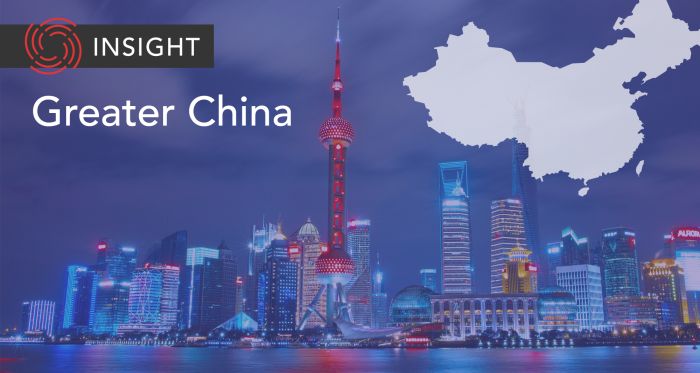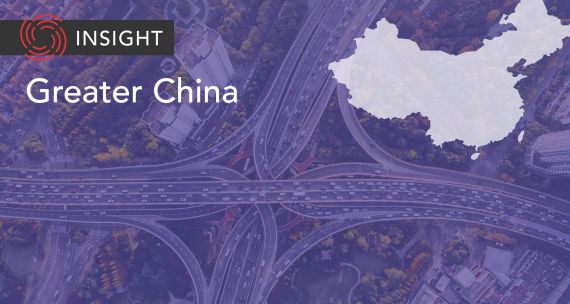The Takeaway
As China faces the most challenging economic conditions in decades, Beijing’s latest 31-point plan to revitalize the private economy seems a welcomed change. But the government’s goal to create a more “marketized, law-based, and internationally leading” business environment has left on-the-ground challenges, particularly for the country’s many cash-strapped and low-morale small businesses.
In Brief
On July 19, China’s State Council unveiled 31 measures to promote the development of the private sector and build a “bigger, better, and stronger” private economy. Recognizing private business actors as key to “high-quality development” and “Chinese-style modernization,” the government has highlighted several objectives in this new plan, including:
- Creating a “stable, fair, transparent, and predictable” private business environment by removing market-entry barriers, ensuring fair competition, and improving access to credit;
- Improving access to financial and human resources by increasing policy and systemic support;
- Creating a stable and equal business environment by strengthening the rule of law and the protection of intellectual property rights;
- Promoting high-quality development by enhancing corporate governance, innovative capacity, and digital transformation;
- Supporting the “healthy growth” of current and future entrepreneurs and encouraging them to play a more active role in political and advisory bodies; and
- Encouraging private enterprises to fulfil their social responsibilities, such as pursuing “common prosperity” goals.
In the days following the State Council announcement, China’s top economic planner, the National Development and Reform Commission, released on July 24 a 17-article plan to stimulate private investment in several key sub-sectors, including transportation, water conservancy, clean energy, new infrastructure, advanced manufacturing, and modern agriculture. In addition, a database of more than 2,900 approved projects worth C$590 billion (3.2 trillion yuan) was created to help investors find government-approved ventures. The following day, Commission officials held back-to-back meetings with key players from various industries to solicit opinions.
Beijing’s ’31 measures’ for the private economy coincided with the Politburo’s annual end-of-July meeting, at which major decision makers, including President Xi Jinping, discussed the direction of China’s macroeconomic policy for the second half of 2023. To tackle key economic challenges, including “operating difficulties of companies,” policy priorities were set for expanding domestic demand, encouraging investing and risk-taking, boosting employment, and closely monitoring the property market.
Implications
With lower-than-expected Q2 growth rates, record-high levels of youth unemployment, and concerningly-weak consumer demand, China’s government faces pressure to revitalize the private economy, particularly after years of zero-COVID policies and crackdowns in the tech, education, and real estate sectors. Authorities are eager to bolster the crucial non-state growth engine, which accounts for around 60 per cent of the country’s GDP and 80 per cent of jobs. Many of the country’s most well-known entrepreneurs have expressed their faith in this long-awaited government support. Tencent co-founder Pony Ma, one of the targets of Beijing’s big-tech crackdowns, made a rare public statement praising the government’s actions as “inspiring and guiding.” Similarly, property magnate Wang Jianlin commented that these new measures will guide Wanda Group’s original plan to open “more than 50 commercial centres” and create more than 200,000 jobs in the services sector.
On the heels of Beijing’s three-year-long regulatory crackdown, however, other businesses remain skeptical of this friendlier attitude. Important questions linger regarding the policies’ implementation, with some small business owners noting that authorities tend to favour big, capital-rich companies — ‘national champions’ better able to compete in international markets. Small actors, hit hardest by COVID-19 restrictions and struggling to keep up with rising costs and weakening cash flows, are also prone to more regulatory checks than their state-owned counterparts. And with a focus in past policies on driving businesses to spend money, small firms are unsure if the new initiative would be different enough to alleviate their financial and regulatory concerns.
Additionally, while Beijing’s action plan has little mention of foreign investment, foreign businesses see possible benefits from these measures in addressing concerns over long-standing issues like market competition and intellectual property rights. But challenges persist, particularly in sectors where China has restricted foreign involvement.
What's Next
- Large enterprises biggest winners of Beijing’s friendlier attitude
To many of the country’s largest corporations, the new revitalization measures signal that Beijing is committed to returning to the pre-COVID status quo after years of crackdowns and restrictions. With China vying for dominance in global high-tech markets, greater unity between the government and China’s biggest brands is likely.
- Effect on small- and medium-sized enterprises less clear
As China’s SMEs continue to struggle under tough economic conditions, the actual benefits of these new policies will depend on several factors, including whether local governments can adequately translate national goals into actionable policies to address the needs of small businesses and whether the government’s commitment to equal treatment will lead to improvements in legal protections and the removal of unnecessary administrative hurdles.
- Businesses have the government’s ear
To follow up on its action plan, the State Council has created an online portal to collect feedback from the public on major challenges facing the private sector, on top of agreeing to meet with company representatives. Many see these outreach initiatives as a positive step in expanding the government’s communication with business owners, some of whom often feel their complaints are left unheard.
• Produced by CAST’s Greater China team: Maya Liu (Program Manager); Dustin Lo (Analyst); and Chloe Yeung (Analyst).




